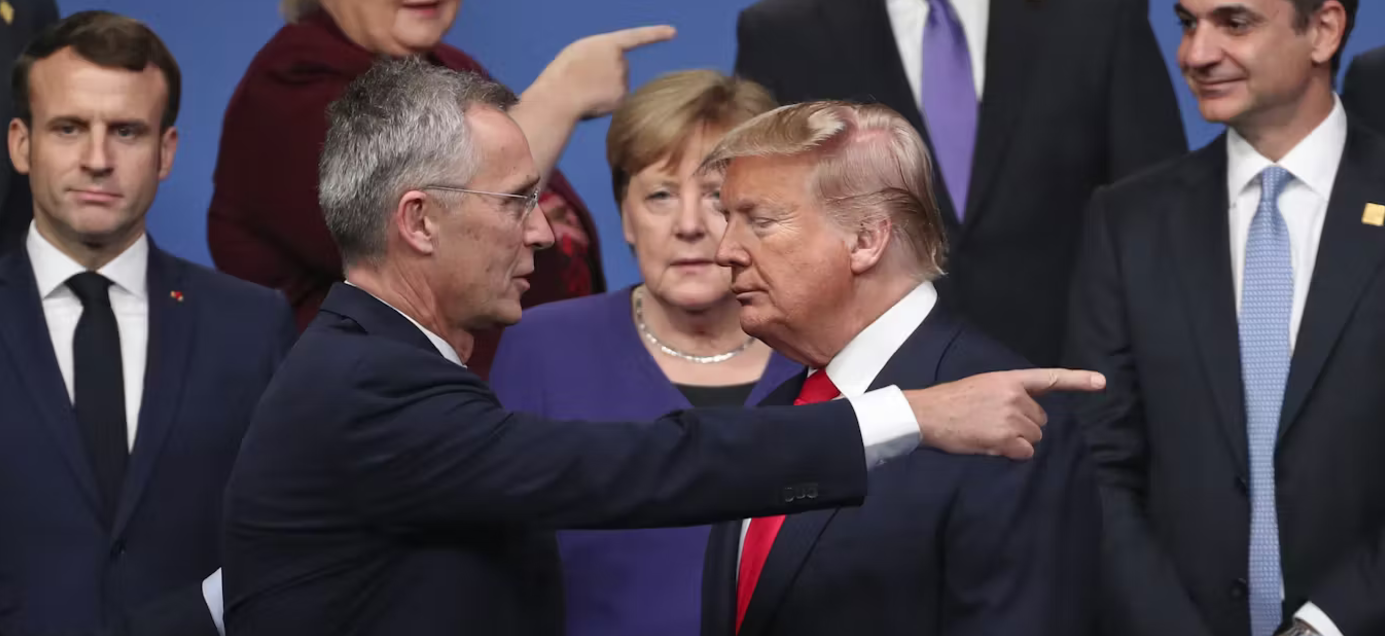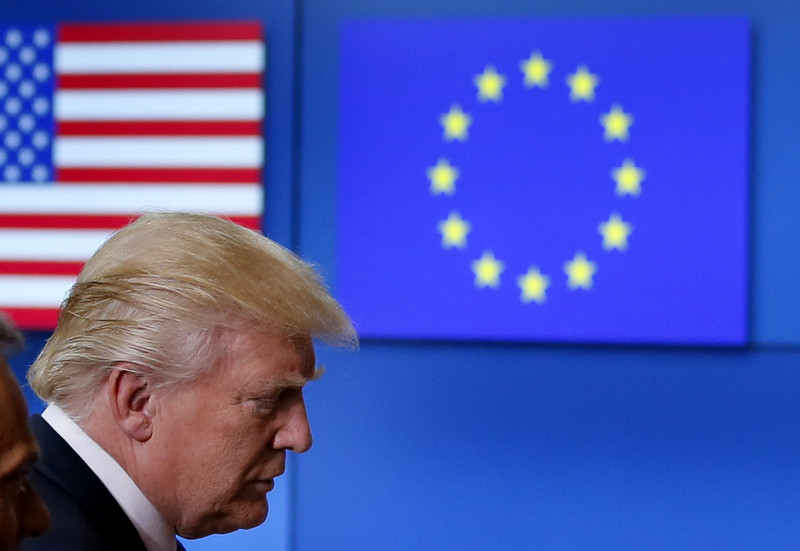By Vera Rodriguez,
In this globalized world, countries rely on each other, namely for trading goods, weapons, or funding. Many interpret this reliance as a positive force that connects states and prevents conflict. In fact, this is the premise for the European Union. The continent traditionally met frequent wars. Therefore, the EU’s founders thought relying on each other for warfare equipment production would deter member states from combating each other. Their theory still holds. Similarly, other global organizations such as the WTO, the Council of Europe, and the United Nations embraced this idea as a principle. A multilateral ruling where “everyone is friends with everyone” is key for stability. At least, Western powers and their allies reiterated that for years. Yet, what happens when your best friend stops facilitating the same values as you and becomes more unreliable by the minute?
That realization is the trouble Brussels faces now. Although the United States is not part of the continent, its influence is notable here. The ally is present in many EU countries’ areas, mainly through economic and military means, such as trade agreements and NATO. According to the EU, around 9.4 million professions on both sides of the Atlantic depend on bilateral trade and investment.
Additionally, US cooperation with the EU is crucial in terms of security. The European Union’s birth and growth ensued during the Cold War. Due to NATO’s presence on the continent, the Union never developed a military branch. This marker, alongside a diminished military presence in most European states’ annual budgets, has made EU countries especially weak in their security. NATO’s existence partly gave Brussels an excuse never to fix this Achilles’ heel. In other words, EU states have depended on NATO for a long time, and there has never been a reason to change this. This weakness of the European project is now a significant critique that became ever so apparent after Moscow’s aggression in Ukraine.

With Trump’s re-election, the problems in the US-EU relationship are more present than ever. In his second presidency, Brussels is now acutely aware of his unpredictability. Nevertheless, he is escalating, expressing some worrisome intentions in foreign affairs. Due to his character, many interpret these allegations as bluffs or uninformed remarks. Nonetheless, they are unsettling, because if they are authentic, neither the EU nor its allies can do anything about them. To name a few of these comments, he promised the end of the war in Ukraine while maintaining a promising relationship with Putin. Secondly, he threatened another trade war if the EU did not buy American gas. Last, he implied he would use force if Canada, Greenland, and the Panama Canal did not cede their territory to the US.
The situation for the EU seems challenging. The Union is tangled in a military alliance with an untrustworthy US, a full-scale invasion attempt in its neighboring country, while unfit to build its army quickly. Moreover, Brussels might switch from relying on Moscow for energy to leaning on Washington, DC. All of this occurs at a time when the weakest governments are dominating Europe and when the far right —in many cases allied with Trump— gains influence in several countries.Therefore, the billionaire’s geopolitical ambitions will likely remain unaddressed. In turn, this lack of response will likely diminish the EU’s credibility.
To fix this, the European Union should diversify its trade and agreements, create an EU military body, and utilize its available energy resources. Improving this trouble is undoubtedly easier enunciated than done, and things always look more evident in hindsight. Nonetheless, these ideas are neither mine nor new and have been repeated endlessly by think tankers, academics, and some practitioners over the past years. This apparent consensus has yet to become reality. Now, the future of Europe with the new US president depends on how the EU resolves these challenges.
References
- Talk, deal, strengthen: How the EU plans to manage Donald Trump’s comeback. Euro News. Available here
- “The US Doesn’t Meddle In Foreign Affairs”. YouTube. Available here
- Trump ramps up EU trade war threat unless bloc buys American oil and gas. Politico. Available here




